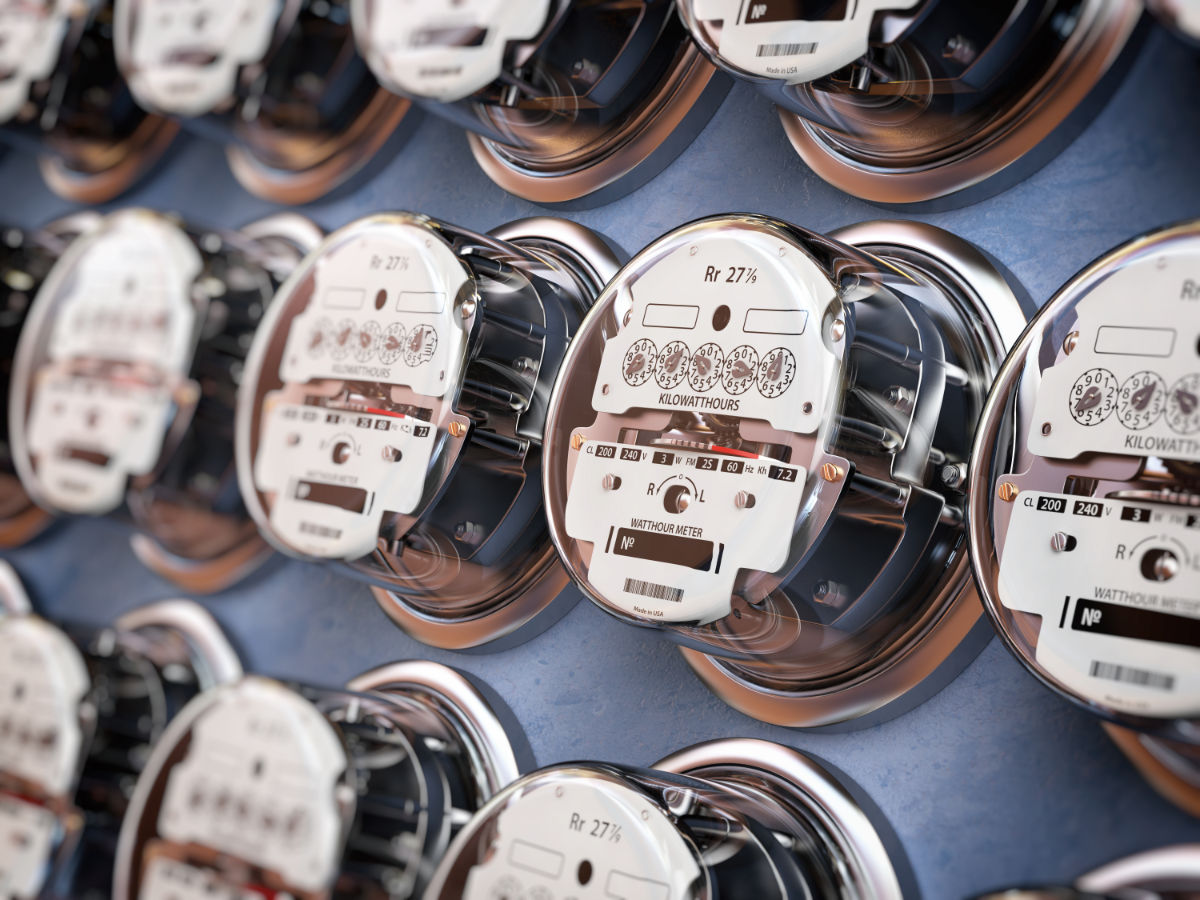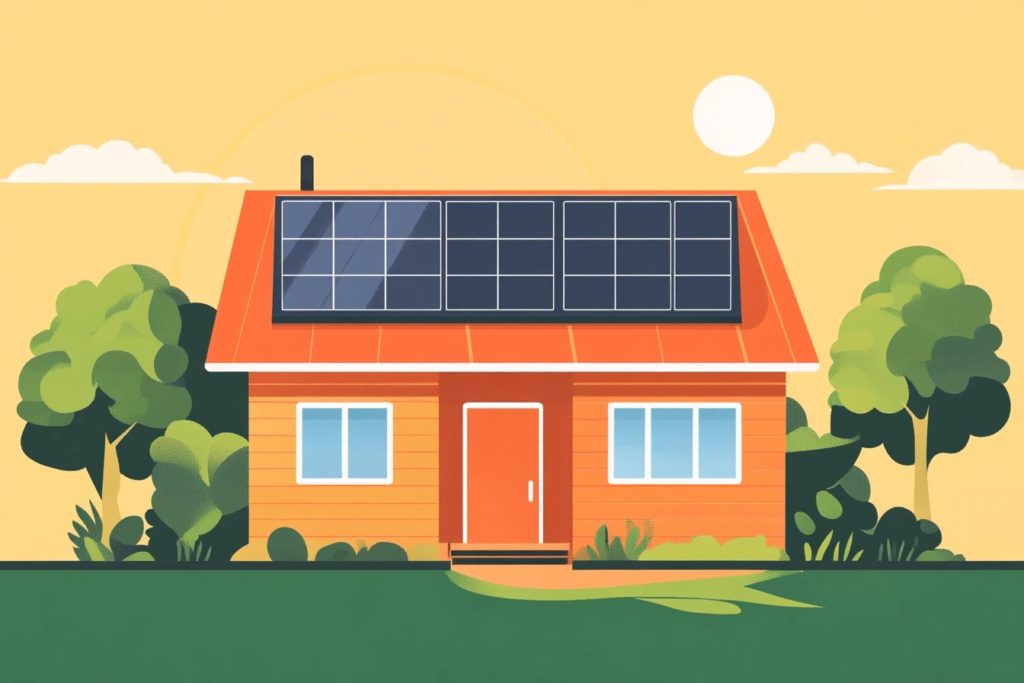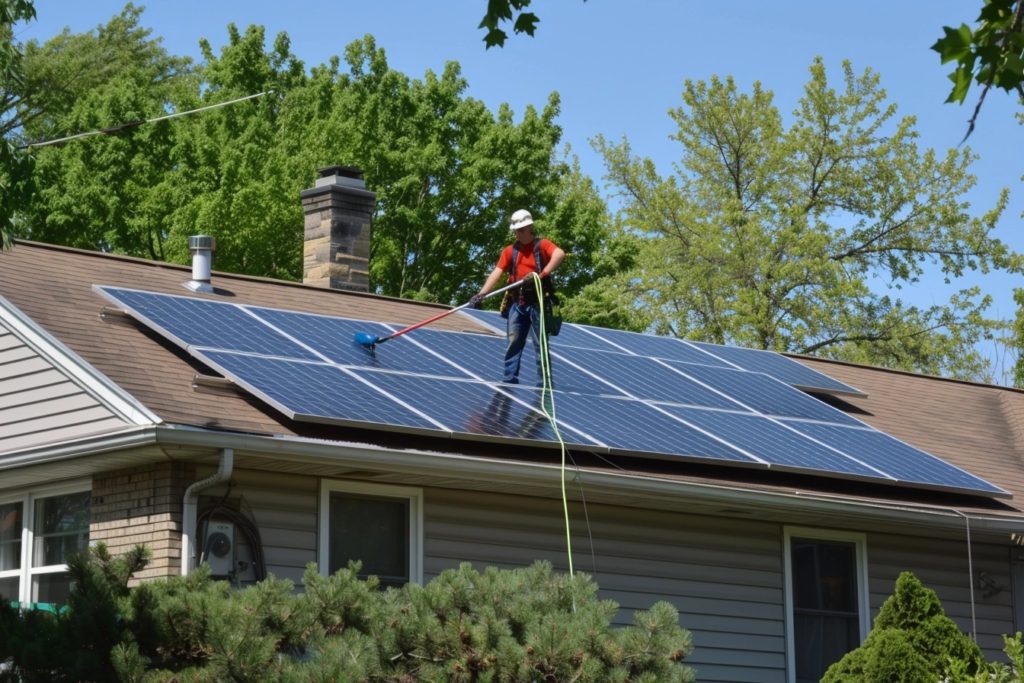
Solar energy is the most abundant energy resource on earth and is being utilized by more and more people every day. An incredible 173,000 terawatts of solar energy strike the earth continuously. Solar energy offers immense energy possibilities and the use of solar panels has become truly mainstream in recent years.
To give an example of how popular solar energy has become in the United States, a new solar project was installed every minute in 2021. This has taken the total amount of solar currently installed across the country to 121.4 GW, a number that is increasing every day.
With such popularity, the question, therefore, is “Are solar panels worth it?” In this blog post, we will answer that question (spoiler: the answer is a resounding yes) and explain why you should consider making the move to solar energy.
For quality solar panel installation across the US, we recommend that you partner with our team at LGCY Power. We have worked with thousands of homeowners in the US, helping them to realize the incredible benefits of switching to solar energy with high-quality solar panels. Let’s get started.
What Are the Benefits of a Solar Energy
The true worth of solar energy can be seen across its many benefits, which range from personal and financial benefits to environmental benefits that are good for everyone. Let’s take a look at some of the main benefits of installing a residential solar panel system on your property.
Save Money On Home Energy Bills
As most people will tell you, the primary reason for switching to solar energy is to save money. For good reason, too, given that solar panels can help homeowners save tens of thousands of dollars on their home energy bills.
By installing a solar energy system, you can gain independence from the grid and rising electricity prices. Solar panels help homeowners to significantly reduce their monthly energy bills or even, in some cases, completely wipe them out. Further below, we’ll look at the saving potential for homeowners with solar panels in the US.
Boost Your Home’s Property Value
According to the Office of Energy Efficiency & Renewable Energy, installing a solar panel system on your property will help to increase its resale value. Property buyers in the US pay a premium of around $15,000 for a property with a solar panel system.
Adding solar panels to a property is regarded as an upgrade in the same as a renovated kitchen or a finished basement. This is part of the reason why they are so attractive to prospective home buyers. It has also been found that homes with solar sell faster than homes without solar.
Even if you are not actively planning to sell your property, it’s another benefit to keep in mind. This is especially true given the long lifespan of solar systems (40 to 50 years).
Additional Savings With Tax Credits
While there is no doubting the long-term benefits of solar energy, it is also true that there is a relatively high upfront cost. That’s why we recommend you act soon and take advantage of the available federal solar tax credit.
This tax incentive currently stands at 26%, which represents significant savings on the upfront cost of purchasing and installing a residential solar system. The 26% rate is due to decrease to 22% in 2023 and expire at the end of next year. This is unless the legislation is renewed by Congress.
Update: In August 2022, the solar tax credit was increased to 30% and extended through 2032.
In addition to the federal solar tax credit, many states continue to offer their own incentives for residents. Combined, these tax incentives help to reduce the upfront costs and make switching to solar energy more affordable for homeowners. Speak to our team for more information about available tax incentives in your state.
Earn Credits With Net Metering
Net metering is available in a number of US states, which allows homeowners to further reduce their monthly energy bills. With net metering, homeowners can sell any excess electricity back to the main electricity grid in exchange for credits.
These credits can then be used to offset the cost of any electricity used from the grid (such as at night). Net metering helps to reduce the payback period on the upfront installation costs and allows homeowners to experience a better return on their investment.
Help Protect the Environment
Looking more broadly, solar energy is beneficial to the environment and the planet. That is because solar panels do not create any greenhouse gases when generating energy. This is in contrast to fossil fuels such as coal, natural gas, and oil.
Solar energy is an abundant, clean, and renewable energy resource. Solar panels help to reduce both air pollution and water pollution, as well as reduce hazardous waste. They help to reduce our collective dependence on fossil fuels, which are finite.
If you are aware of your carbon footprint and the need to protect the planet for future generations, the single biggest step you can take is to install solar panels on your property.
Power Technologies Like Electric Vehicles
In addition to solar panels, another technology that has hit the mainstream in recent years is electric vehicles. Many US states are planning to phase out combustion-engine vehicles over the next couple of decades, which will put an even greater focus on electric vehicles.
They are becoming not only more reliable in terms of longer driving ranges and shorter charging times but also more affordable, too. However, electric vehicles are only as clean as the energy source used to charge them. Using electricity generated from burning fossil fuels does not have the intended environmental impact that electric vehicles are designed to have.
Using electricity from solar panels to charge electric vehicles is environmentally advantageous. It is also cost-effective, given that using solar panels to charge electric vehicles is cheaper than using public charging stations and electricity from the main grid.
The Science Behind Solar Panels
Now that the benefits of switching to solar energy have been established, let’s take a look below the surface to understand exactly how solar panels work. Even though the science behind solar panels is somewhat complicated, the reality is that they are incredibly easy to operate.
Solar panels are made up of the following components:
- Photovoltaic cells (silicon cells)
- Inverter
- Metal frame
- Glass casing
- Wiring
In the United States, it is recommended that homeowners install solar panels in a south-facing direction. This will help to achieve maximum output (roofs are an ideal location).
The solar panel’s photovoltaic cells work as a semiconductor with two layers—one that is negatively charged and another which is positively charged. These cells energize and create an electric field when they are hit by photons from the sun.
Within the semiconductor wafer, electrons are set into motion, creating an electric current. The aforementioned inverter will then direct current electricity into alternating current electricity. It is this electricity that is used to power homes.
While this may be somewhat scientific, solar panels require very little attention and maintenance. Washing the solar panels with water two to four times a year is all that is required to keep them performing at maximum output. Routine inspections are also recommended to ensure that your system remains in tip-top condition.
What Is the Cost of Solar Panels in the US?
Below, we will highlight the main factors that determine the exact cost of installing solar panels on a property. Here, we will look at the average cost for the US as a whole.
According to SolarReviews, the average cost of installing solar panels in 2022 is (after applying the federal solar tax credit)
- $9,620 for a 4 kW system
- $13,098 for a 6 kW system
- $16,872 for an 8 kW system
- $20,350 for a 10 kW system
- $24,420 for a 12 kW system
The payback period for the upfront cost of installation is typically between 4 and 8 years, depending on the specific factors we will look at below. Given the long lifespan of solar panel systems, making the switch to solar energy is seen as an excellent investment.
Factors That Determine Solar Panel Installation Costs
As noted above, the larger the solar panel system that is installed, the greater the cost. Factors that determine the size of the solar system include:
- The location of your property
- The size of the property
- The number of people who live there
- Its current energy usage
Properties that have higher energy needs will require a larger solar panel system to offset these costs.
With regards to the location, solar panels in the southeast of the US will be more efficient than in the northwest, for example. This is because of the difference in the number of sunlight hours both regions experience. Properties in regions where there is less sunshine will typically require larger solar systems to meet their energy needs.
The specific type of equipment that you choose to install is another factor that determines the upfront costs. There are three tiers of solar systems, with Tier 1 systems being the premium choice. Though they are more expensive than Tier 2 and Tier 3 systems, they have a lower annual degradation rate and are a better long-term choice.
Here at LGCY Power, we will be happy to discuss the most suitable solar system size with you and help you to find a system that matches your home’s energy needs.
How Much Can You Save On Energy Bills With Solar Panels?
As we have mentioned, the primary benefit of solar panels in the eyes of most homeowners is the savings potential. Let’s take a specific example to highlight what homeowners in the US can save with solar panels. California is the leading solar state in the US, so let’s look at Los Angeles County.
Example: Imagine a property with an average monthly energy bill of $173 is recommended to install a 6 kW solar system. After applying the federal solar tax credit, the upfront cost of purchase and installation would be between $10,844 and $13,253.
The net profit over 25 years, which is the savings minus the upfront costs, would be between $48,476 and $59,248. The payback period would be between 5.5 and 6.7 years.
As this example highlights, the potential savings on energy bills with solar panels is significant. Given that solar panels can continue to effectively generate electricity for upwards of 40 to 50 years, the total potential savings is even higher than the 25-year estimate.
Of course, this is purely a hypothetical estimate. Numbers vary greatly based upon your home, shade, current market costs, location and other factors. Get actual numbers for your home by speaking with one of LGCY Power’s experienced energy consultants.
Why Choose LGCY Power to Go Solar
If you are interested in switching to solar panels, your premier choice is LGCY Power. We are recognized as the top-rated solar power company in the country and are committed to ensuring that our customers reap the benefits of solar energy.
Our goal is to make the process of switching to solar quick and easy for homeowners. We take care of every step of the process, from our initial conversation with you to the installation. Click here to learn about the LGCY Difference and see why we are the clear best choice for solar panels.
The Bottom Line: Are Solar Panels Worth It?
So, to recap this post on “Are solar panels worth it?”, the bottom line is a resounding yes. Solar panels can help homeowners save tens of thousands of dollars on their home energy bills. Other benefits of solar panels include protecting the environment and powering new technologies such as electric vehicles.
Turn your home into a solar home with solar panels from LGCY Power. Contact our expert team today to learn more about the value of switching to solar energy. Schedule a consultation without any commitment or obligation. We look forward to speaking with you.




